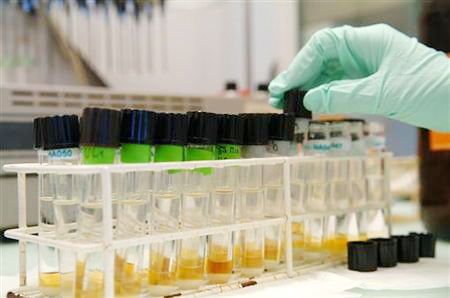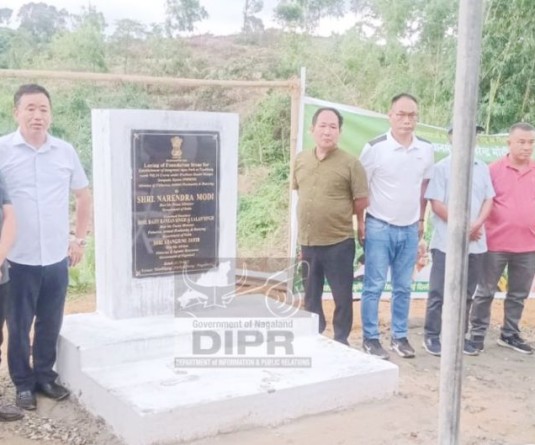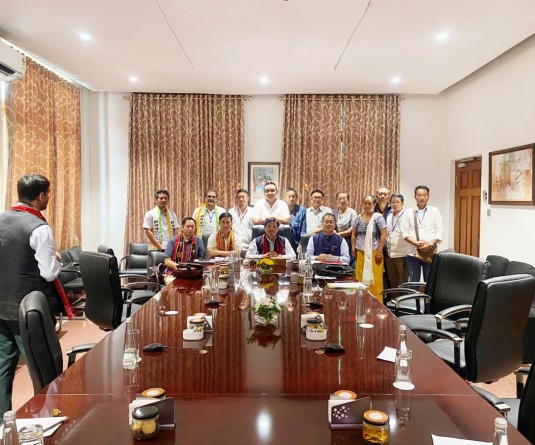High-tech Forensic Lab a necessity for Nagaland

Morung Express News
Dimapur | July 29
Crime investigation in Nagaland, despite a rising insistence on adopting state of the art technology, largely remains basic. With little or no resources to draw from, the Nagaland Police are mainly confined to the traditional practice of ‘interrogation’ and applying the personnel’s resourcefulness to frame charges that can be admitted in court.
The lacks are many and glaringly so when it comes to forensics— an area that has often had the state police on the backfoot.
With this in context, forensic science as an aid to investigating crime formed the basis of a seminar conducted for ‘Investigation Officers’ of the Dimapur police at the Office of the Commissioner of Police on July 29.
The workshop was organised in collaboration with the Naga Forensic Science Association (NFSA)- a body formed by a group of young Forensic Science graduates in 2018.
The topics covered broadly Crime Scene Investigation (CSI) and collecting evidence for forensic analysis. Fingerprints, photography, DNA analysis, verification of “questioned documents,” including handwriting and signature comparison; besides identifying the security features of currency notes and passports were the sub-topics covered.
NFSA members Vetolü P Tunyi, Vicheno Kera, Lanujungla Imsong, Kimeri Ngullie and Puleno Kennao were the resource persons.
“Advanced laboratory technology cannot be used if the evidence is lost or contaminated because of improper or poor collection,” said Kennao during her presentation on CSI. Kennao, who holds a Ph.D in Crime Scene Management further commented, “We may think it’s hardly of any use since we do not have the required tools yet we can take a step forward.”
As far as forensic infrastructure is concerned, Nagaland has a Forensic Science Laboratory (FSL) in Dimapur. Established in 1982, the FSL currently has 4 departments – Narcotics, Photography, Polygraph and Fingerprints – which are said to be functional.
But when it comes to DNA analysis and ballistics, investigations hit a roadblock. “I cannot comment on the existing equipments and expertise at the FSL. I can though tell that all ‘biological specimens’ (requiring laboratory examination) are sent outside. Even for verifying documents relating to forgery, it has to be sent outside the state,” confided a police official today.
While there is no rule stopping such an arrangement, it impacts the pace of investigation, which often gives the advantage to the accused, he added.
For investigation related to cyber crimes, the state police seek the help of the Kohima branch of the National Institute of Electronics & Information Technology.
The state’s FSL however has the capability to examine fingerprints, besides maintaining a database, and narcotics.
With the investigations and “convictions here mostly based on verbal confessions,” he said that having a well-equipped and well-staffed forensic laboratory “at our doorstep” would greatly aid the police.
“We have today a growing pool of Forensic Science graduates, whose expertise can be utilized,” he added.
Interacting with the media following the seminar, Lanujungla Imsong informed that north-east states like Mizoram, Manipur and Meghlaya have fully functional laboratories specializing in the various branches of Forensic Science. She has a Masters degree in Forensic Science with further specialization in biology, serology and DNA Fingerprinting and has worked at the Directorate of Forensic Science, Mumbai.
She said that in addition to existing FSL in Dimapur, having forensic experts in every district would boost the efficiency of crime investigation.
Puleno Kennao emphasized on the need for wholehearted government investment to turn and sustain the lone FSL into a high-tech and reliable asset. “We have the human expertise today. We want to serve our own state too,” she said.
In September 2018, Deputy Chief Minister Y Patton during the inauguration of the new building for the FSL at Kacharigaon declared that 5 new departments - polygraph, cyber forensic, questioned documents, ballistics and serology & biology – will be added.





